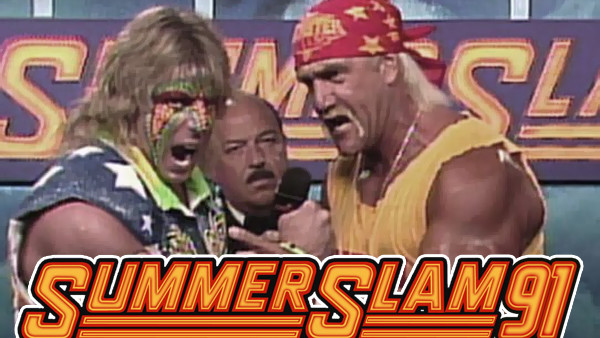31 Years Of WWE SummerSlam Mistakes
27. SummerSlam '91 - The Ultimate Tantrum

The mistake here isn't what went down at MSG on 26 August 1991, but rather what people believe about it.
The common myth is that The Ultimate Warrior barged into Vince McMahon's office on the day of the show and held the boss to ransom for $500,000 supposedly due to him to help fund the purchase of his Arizona home. Coming moments before his main event match, it was the Ultimate ultimatum - "pay me, or I walk."
With testosterone at critical levels, tensions escalated to the point where Hulk Hogan and Sgt Slaughter were moments from stepping in to pummel the wayward Warrior. Thankfully, it didn't go that far, as Vince signed the contract - only to fire his insubordinate employee immediately after the show.
Given Hogan is one of the primary sources of this version of events, you know to have the salt shaker on standby.
The backstage bruisers were never on hand to defend Vince - that's nothing but bluster for the sake of bravado. Similarly, Warrior made no demands at the PPV; he had been no-showing events as a result of the tiff several weeks previously. Terms giving Warrior parity with Hulk Hogan were agreed on 13 July 1991 - over a month before SummerSlam.
In fact - as ever - the ball was entirely in Vince's court. Not wanting to waste months of build for the show's main event, the chairman simply agreed to Warrior's demands, knowing full well there was no chance of honoring them; Warrior being suspended immediately afterwards is true.
The disgruntled Warrior was given a $75,000 paycheck for SummerSlam - the same as Hogan - but Vince was sure to top the Hulkster's wallet with a $15,000 bonus, ensuring he had the last laugh.